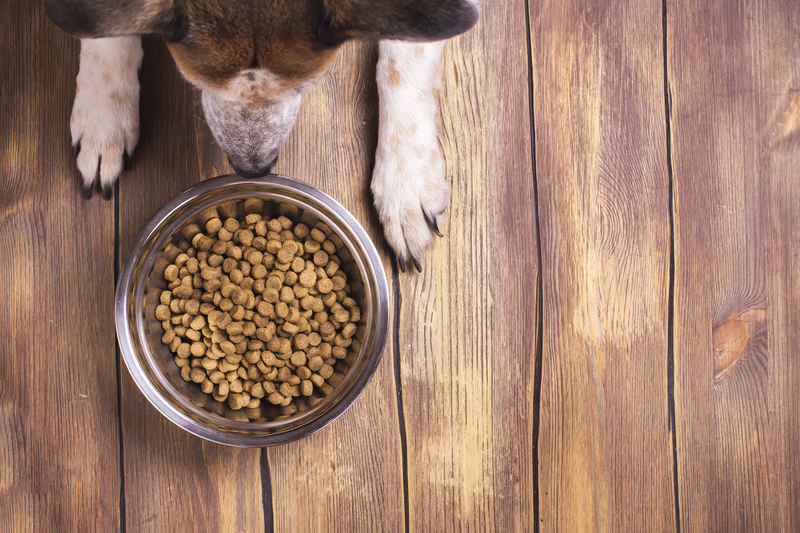We've all heard about dog food recalls. Unfortunately, they can be too common and widespread and we can't simply stand by and hope that it doesn't happen for the food we give our dogs. Instead, you can prevent your dog from being a victim of a recall by becoming informed about what deceptive marketing schemes to avoid falling for:
More and more pet parents seem to be getting quite fed up with the shady marketing practices used by pet food companies to promote their products. Recently, attorneys for a pet owner in Southern California filed a complaint against Ainsworth Pet Nutrition, which produces Rachael Ray's Nutrish brand of pet food.
Pet Owner Switched to Nutrish Specifically Because It Was Marketed as Natural
The plaintiff, Christine Grimm, switched to Nutrish in 2016 as the primary source of food for her dog because the products were touted as natural and without artificial preservatives.
“Defendants engaged in deceptive labeling practices by expressly representing on the Products' labels and website that the Products are ‘natural' and have ‘no artificial preservatives' despite the presence of L-Ascorbyl-2-Polyphosphate, Menadione Sodium Bisulfite Complex, Thiamine Mononitrate, ‘natural flavors,' and a variety of caramel color.”
L-ascorbyl-2-polyphosphate is an inexpensive feed-grade source of vitamin C. Menadione is synthetic vitamin K that may be toxic to the liver and other organs. Thiamine mononitrate is synthetic vitamin B.
A commonly used caramel coloring is 4-Methylimidazole, which has been linked to lung cancer in mice and possibly leukemia in female rats.
Makers of Nutrish Have Engaged in a Long-Term Campaign to Convince Consumers Their Products Are ‘Natural'
Grimm's attorneys argue the terms “natural” and “no artificial preservatives” violate California laws designed to insure a company's claims about its products are truthful and accurate.
More Pet Food/Treats Deception: ‘Made in the USA'
The lawsuit was against Tyson Pet Products, and was brought by pet parent Susan Fitzpatrick of Placer County.2 Fitzpatrick's claim was that Tyson's “Made in the USA” pet treats should not be labeled as such because some of the ingredients used in the treats are sourced from outside the country.
Attorneys Davis & Norris, LLP, on behalf of Fitzpatrick, also filed a similar class action lawsuit on the same day against Big Heart Pet Brands/J.M. Smucker Co, manufacturer of Milo's Kitchen dog and cat treats.3 Milo's Kitchen jerky treats are among the treats linked to kidney failure and other serious illness in pets.
Lawsuit Alleges Tyson Pet Products Are Not Made in the USA
At least one Tyson product, a dog treat called Nudges, contains tapioca starch made from cassava root. Cassava root can't be commercially grown in the U.S.
In the filing against Big Heart/Smuckers, tapioca is also mentioned, along with imported vitamin, mineral and amino acid packets.
Fitzpatrick's suit goes on to say consumers specifically search for pet foods and treats made exclusively in the U.S., due in large part to the massive 2007 recall of pet food that killed hundreds and perhaps thousands of dogs and cats.
Assembled in the USA Versus Made in the USA
“Assembled” versus “made” is, sadly, an important distinction.
A company can legally market its product as Made in the USA as long as some (closely guarded) percentage of the product is sourced here, and the product is assembled here. As a consumer concerned about the source of the ingredients in your pet's commercial diet, I recommend you ignore the statement “Made in the USA.” Just mentally replace “made” with “assembled” and then decide if you want to roll the dice.
It's scary to realize that your dog's food isn't what it seemed. In reality, it could have all been a marketing ploy. Your vet may have even endorsed the brand! The good news is that by learning what to avoid, you can steer your dog's health in the right direction. We would hope that our dogs' food would go through the same stringent approval process that our food goes through, but that's not always the case. I'm going to check my own dog's food for any of these controversial marketing statements now!
Article Source: Healthy Pets









